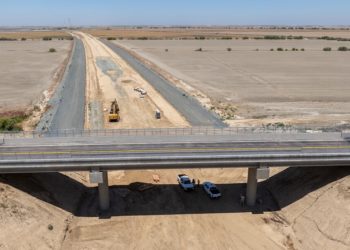The afternoon sunshine set Westwood Boulevard aglow. It was an incongruous setting for Masud Valipour, as he sat inside his West Los Angeles bookshop on Tuesday and contemplated the destruction being unleashed more than 7,500 miles away in his native Iran.
“Somebody attacked my country,” Mr. Valipour said of Israel’s airstrikes on Iran that began on Friday.
Inside the Ketabsara bookshop, thick leather-bound books rose high off the shelves. Framed Persian calligraphy on the walls evoked a timelessness. Mr. Valipour said he opposes the Iranian regime. But he did not want to see his home country bombed.
Mr. Valipour, a U.S. citizen, has resigned himself to the possibility that the United States could join Israel’s war against Iran. It wouldn’t be a question of allegiances for Mr. Valipour.
“If there is fighting between parents, mom and dad, do I choose a side or say, ‘OK, I’m going to talk to them to find a resolution?’” he said.
On Tuesday, in one of the most vibrant Iranian American communities in the United States, uncertainty and anxiety lingered among residents, as Iran and Israel continued another day of fierce fighting. Westwood, a neighborhood on the west side of Los Angeles near the U.C.L.A. campus, is home to the largest Iranian community outside of Iran. It has taken on many names, including Persian Square, Little Persia, Little Tehran and Tehrangeles, a combination of Tehran and Los Angeles.
After President Trump signaled that the United States could enter the conflict against Iran, reaction among the Iranian Americans in Westwood was a mix of dismay, concern and hope for the possible end of the Islamic regime.
Some in the neighborhood worried the conflict could divide the community. There were those, including many Jewish Iranians, who supported Israel’s bombing campaign as a legitimate way to end the rule of Ayatollah Ali Khamenei. And there were those who said they believe regime change should not come at the expense of innocent lives.
Israeli strikes have killed at least 224 people in Iran, according to the country’s health ministry, and injured more than 1,400 people. Retaliatory strikes by Iran have killed at least 24 people in Israel, identified as civilians, with about 600 injured.
On Tuesday night, a man was on the phone with his father-in-law as he pulled up to Pink Orchid, a Middle Eastern bakery in Westwood. The man asked that his full name not be used, out of fear of retribution by the Iranian government if he returns to Iran.
As evacuations have intensified in Tehran, the man’s father-in-law was among those stranded there. Gasoline stations had run out of fuel. “We’re worried about families, our people,” the man said, adding, “Some people couldn’t coordinate, or they’re too old, or they couldn’t leave early enough and then they ran into gas problems.”
Though he harbored no sympathy for the government and the military leaders who were killed in Israeli airstrikes, his main concern was with the safety of civilians.
“I just hope that when they consider airstrikes on western Tehran and other residential cities that they consider the fact that a lot of people don’t have cars anymore, after 40 years of sanctions,” the man said. “A lot of people don’t have cars or the means to leave. So it’s not as easy as just telling people to get up and go.”
Of an estimated 400,000 Iranian-born immigrants living in the United States, more than a third live in the Los Angeles region. Many live in the Westwood area, but others live across West Los Angeles, including in Beverly Hills, where Iranian Americans have not just settled roots but have established political power.
Sharona Nazarian, the mayor of Beverly Hills, fled Iran with her family in 1979, seeking refuge from religious persecution as Iranian Jews, and has lived in Beverly Hills for more than 30 years. Ms. Nazarian is the first Iranian American woman to serve as the city’s mayor.
In a statement, Ms. Nazarian said she felt compelled to speak out about the tensions between Israel and Iran, and expressed sympathy for innocent civilians.
“It’s important to remember: Israel’s conflict is not with the people of Iran,” Ms. Nazarian said. “In fact, the people of Israel and Iran share a long and rich history of friendship dating back to the time of Cyrus the Great. The Iranian people have suffered deeply under a regime that has isolated them from the world and placed them in harm’s way.”
Shawn Hubler contributed reporting.
Orlando Mayorquín is a Times reporter covering California. He is based in Los Angeles.
Jesus Jiménez is a Times reporter covering Southern California.
The post In ‘Tehrangeles,’ Iranian Americans Anxiously Watch War Unfold From Afar appeared first on New York Times.




